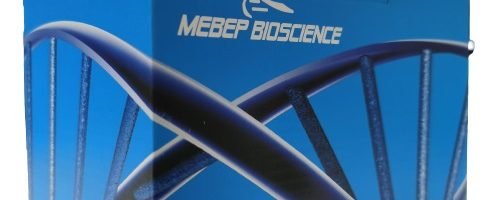
Genomic Fast DNA Kit
2024-12-02
Bacterial Genomic DNA Kit (liquid form)
2024-12-02Bacterial Genomic DNA Fast Kit

Product Number: DNK1101
Scope of application
Suitable for bacterial genomic DNA extraction.
Shipping and Storage
- At low temperatures, CB may precipitate and precipitate. It can be dissolved again in a 37°C water bath for a few minutes to restore clarity and transparency. After cooling to room temperature, it can be used.
- Protease K is stored in ready to use glycerol buffer and transported at room temperature. After receipt, store at room temperature not exceeding 25℃ for at least 6 months, 4℃ for 12 months, and -20℃ for 2 years.
- To avoid the volatilization, oxidation, and pH changes of reagents exposed to air for a long time, the lid of each solution should be promptly closed after use.
Components
| Component | Storage | DNK1101 50 Preps | DNK1102 100 Preps | DNK1103 200 Preps |
| Balance Buffer | RT | 5mL | 10mL | 20mL |
| Buffer GY | RT | 30mL | 60mL | 120mL |
| Buffer CB | RT | 11mL | 20mL | 40mL |
| Buffer PE | RT | 16mL | 32mL | 64mL |
| Buffer WB | RT | 13mL | 25mL | 50mL |
| Buffer EB | RT | 10mL | 10mL | 20mL |
| Proteinase K | 4°C | 1mL | 1ml ×2 | 1ml ×4 |
| Adsorption column AC | RT | 50 | 100 | 200 |
| Collection tube (2ml) | RT | 50 | 100 | 200 |
This reagent kit can be stored at room temperature for 12 months without affecting its effectiveness.
Description
The unique binding solution/protease K rapidly lyses cells and uses a silica gel membrane centrifuge column to specifically adsorb DNA, without the need for toxic reagents such as phenol chloroform or time-consuming alcohol precipitation, maximizing the removal of proteins and other inhibitory impurities. Suitable for efficiently extracting genomic DNA from various bacteria. The extracted DNA can be directly used for experiments such as enzyme digestion, PCR, Southern Blot, etc.
Features
- No need to use toxic phenol or other reagents, and no need for time-consuming ethanol precipitation.
- Fast, simple, and the operation of a single sample can generally be completed within 30 minutes.
- Multiple column rinses ensure high purity, with a typical OD260/OD280 ratio of 1.7-1.9 and a length of up to 30 kb-50 kb. It can be directly used for PCR, Southern blot, and various enzyme digestion reactions.



